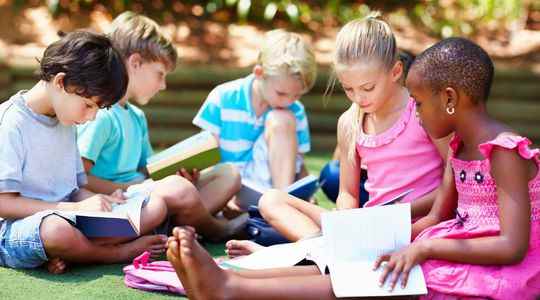Nesrine Mourou thought about it for a long time. His immigration project was based on the possibility of offering a solid education and promising prospects to Yara, his only 11-year-old daughter, previously educated in Tunisia in the French system. Settled in Canada for about a year and a half, she now feels a certain ambivalence towards the Canadian school system. Her daughter’s French public school in Ottawa is too “relaxed” for her taste.” Canada has a very good system, with an honorable ranking, but the educational side is not strong enough for young performers. who are used to a brisk pace,” she notes.
Here, there is no textbook for each subject and little homework, at least in the lower classes. Instead, a work plan and photocopies of the lesson. “This makes it possible to update the content but makes monitoring at home difficult”, estimates Nesrine Mourou. Before tempering: “The approach is very different from the French system, where lectures dominate, where students have a restricted right to speak, where the lessons are to be learned by heart and the instructions rigid.” Moreover, the international baccalaureate program offered from the 3rd (equivalent to the 9th in Canada) packs it. Focused on research, teamwork, oral presentations, leadership and autonomy, he should suit his daughter.
It was this Canadian approach that immediately appealed to Enora Delamare, 19, now enrolled in criminology at the Université de Moncton. She and her family moved to this New Brunswick town four years ago. At home in Brittany, a lot of homework had to be handed in the next day, unlike her Canadian school, where she could always talk to the teachers, even early in the morning, in real time. Something to ease the anxiety… “I sleep much better in Canada than in France,” she smiles.
A pedagogy with various flavors
The search for this balance between pedagogy and student well-being is at the heart of the mission of most Canadian elementary and secondary schools. They favor the development of talents, “and not only academic success”, argues the superintendent of the Council of Catholic Schools of the Center-East, Danielle Chatelain. According to her, pedagogy can also take “various flavors” here. In this school board, which welcomes more than 26,000 young Francophones from the Ottawa region, we seek “to further personalize the learning process and to adapt to young people, according to their culture, their origins, their interests and their abilities. “, she explains. “We are certainly interested in academic “yield”, but our substantive work concerns their development, not the fact of making them simple machines to produce notes… ” Suffice to say that the he critical spirit, sense of ethics, development and commitment of students are in the spotlight.
In fact, one of the strengths of Canadian schools is to encourage their creativity, their autonomy… and team sports. Very popular in Quebec, the sportétudes program continues to create champions. And in this province, we insist on the usefulness of spending two years in Cegep (see page 90) before enrolling in university.
In terms of creativity, Enora Delamare appreciated having more freedom to, for example, design an oral presentation on a utopian city that she could imagine as she pleased. Before adding: “In France, we are imposed a theme and we must submit to it, whether we like it or not. Here, the approach is more based on our personality.” An approach that allows students to discover themselves and affirm their identity. Moreover, the walls of the schools are covered with posters and paintings by the students. Canadian schools also have in-school sports teams. “In France, you have to train in an institute. It’s really apart,” adds Enora.
In math, performance above the OECD average
The feelings of Marie-Dominique Herbreteau, from Perpignan who settled in Nova Scotia twenty years ago, is quite similar. Instead of being constantly focused on academic achievement, her sons, now adults, were exposed to new methods, such as eloquence contests, science fairs and even chess… “It’s not not the case in France. And of course, they learned English…”, she recalls. And also to appreciate the support of the teachers. Conclusion: Canada takes second place in the international ranking of the OECD in the Pisa 2018 tests (Program for International Student Assessment). In mathematics, science and reading, the performance of Canadian students aged 15 and over is above the OECD average. Like France, of course, but it ranks 18th.
Beyond the results strictly speaking, the Canadian system also promotes psychological development. To tackle learning disabilities, addictions, anxiety and family problems, most Canadian schools have social workers, psychologists and sometimes nurses. A “brilliant” initiative, according to Enora Delamare, especially since these services are free. “When we go to school, our problems do not disappear,” argues the young woman.
“It’s the strength of the Canadian system, admits Nesrine Mourou. I was skeptical at first. I had trouble with the approach. I did not understand the idea of emphasizing these scourges of society or these issues, because, culturally, in my country of origin, it’s hidden, we don’t talk about it.” She realizes that newcomers all have their own cultural background and expectations of school in Canada. Besides, Yara already seems to him “fulfilled” at school. “We have made a 360 degree change. The pace is very slow, of course, but it takes into consideration other needs of the child,” she concludes.
